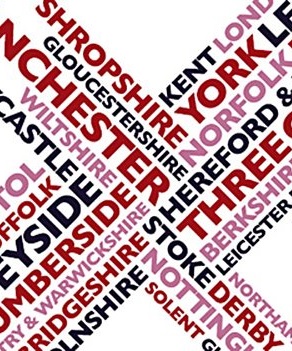On Wednesday, 8 November, BBC local radio will be 50 years old. It is a tribute to presenters, listeners and friends that it has lasted that long. Sometimes it has seemed like it hasn’t had many friends in the top echelons of the BBC. It has long been eyed at with envy by commercial broadcasters and local newspapers, who don’t get a public subsidy. It has lasted so long because it reaches out to local communities as a friend.
On 8 November 1967, BBC Radio Leicester started broadcasting, one of eight stations in the first wave of local stations. Since then, the BBC local radio has expanded to 40 stations in England and the Channel Islands.
Local radio wasn’t a BBC idea. Frank Gillard, a former war correspondent, had seen the potential of local radio in America and Canada. Some of the pirate stations off the coast of Britain were already broadcasting local content. But Harold Wilson’s government passed the Marine Broadcasting Offences Act. This outlawed the pirates and led to most of them shutting down. To offer an alternative, the BBC re-organised the Home Service, Light Programme and the Third Programme into Radios 1, 2, 3 and 4. The BBC was also granted permission to have a two-year experiment with eight local radio stations in England. Frank Gillard championed the first BBC local radio stations. A host of eclectic producers and presenters made their way and cut their teeth on these new stations, which had a lot more freedom than local radio today.[1]
The founder manager of BBC Radio Leeds, Phil Sidey set out the philosophy for the new network the evening before that station opened:
“Radio Leeds will do its best to fill the need for information in a confusing age, to wipe out the pools of loneliness in the midst of a bustling city, to let the people and their servants in the City Hall get together more fruitfully to provide an audience for the music-maker, the teacher, the debater, the ordinary man in Leeds and, more important, the extraordinary man. Radio Leeds can help Leeds know itself better than ever before.”
You can still hear that philosophy in action every day on BBC Radio Shropshire, though these days the language is gender neutral.[2]
Like almost everything in the BBC, local radio is always under threat. In 2011, the BBC proposed axing £5.3 million from local radio budgets under a programme euphemistically called “Delivering Quality First”.[3] Local radio listeners are made of tough stuff and dozens of local campaigns and several national campaigns were set up to “save local radio”. The campaign succeeded in halving the cuts.
BBC local radio is listened to by more than 8 million people, 15% of the potential radio audience.[4] Radio Shropshire does better than the average, reaching 25% of its potential audience, 100,000 people.[5] In the BBC local radio network of 40 stations, only Jersey, Guernsey, Cumbria and Cornwall get a bigger proportion of the potential audience than Shropshire.
I have thought a lot during the save local radio campaign and since on why local radio works so well for me and many others. It comes down to the essential difference between television and radio.
TV is geared up to creating celebrities. A celebrity is not you and me. The whole idea of the cult of celebrity is that it creates people who are distant from the world we live in. That’s why so many people are fascinated, even star struck by them.
Radio is different. We don’t watch it. It permeates our lives as we go about our daily business. Local radio doesn’t create celebrities. Its presenters live lives much like our own. They are embedded in our communities. That’s why we trust them. That’s why we regard them as our friends. That’s why we need them.
Congratulations to BBC local radio on its 50th birthday. The world will be very different in 50 years’ time but I hope we still have local radio or at least something doing the same job for our communities. To paraphrase Phil Sidey’s speech nearly 50 years ago:
“Local radio can help us know ourselves better than ever before.”
Notes
[1]. For those wanting more information on the history of BBC local radio, see The origins of BBC local radio. Former station director, Phil Sidey wrote an entertaining account of the first two years of BBC Radio Leeds in “Hello, Mrs Butterfield”, Kestrel Press 1994. And for those with several hours to kill, Matthew Linfoot’s PhD thesis, “A history of BBC local radio in England, c1960-1980”, can be downloaded from the open access champion, Core.
[2]. Radio Shropshire was one of later additions to the network, first broadcasting on 23 April 1985. That makes it 32 years young.
[3]. In a comment on BBC Radio 4’s Feedback, I accidentally described this as “Destroying Quality First”. That and a blog led to an invite from Feedback to gate crash a radio conference in Salford’s Media City and quiz BBC bosses about the cuts.
[4]. Source: RAJAR. 90% of the population listen to radio at some point during the week.
[5]. The reach for Radio 4 is 21% nationally. The BBC doesn’t publish local data but the last time I talked to senior BBC people about this, BBC Radio Shropshire had a greater reach than Radio 4 in its reception area.

